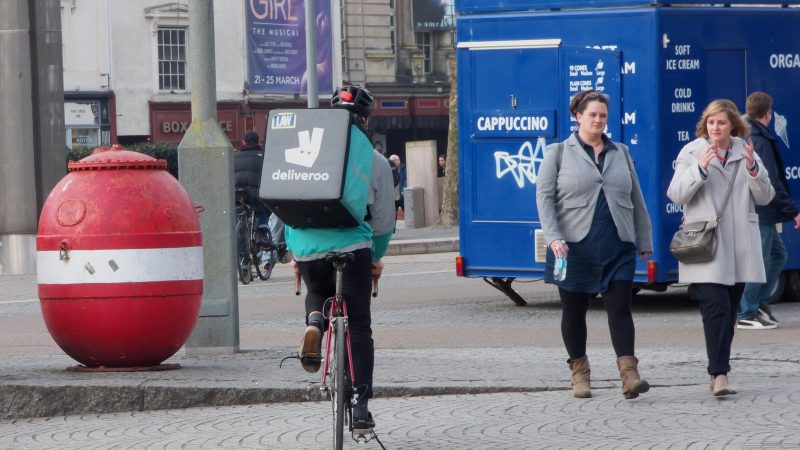Deliveroo riders can’t have trade union representation for collective bargaining, court rules

The UK Supreme Court has ruled Deliveroo riders are not employees and therefore can’t have trade union representation for collective bargaining, in a landmark case.
After spending over seven years fighting the case in court, the Independent Workers’ Union of Great Britain (IWGB) lost the legal fight to form a collective bargaining unit for riders at the delivery giant.
The initial case was brought before the Central Arbitration Committee (CAC) in 2016, which can order an employer to recognise a union, however it was rejected, a decision which was appealed by the IWGB and therefore brought to the Supreme Court.
The ruling found that there was not an employment relationship between Deliveroo and its couriers, as riders are able to appoint a substitute to take on their jobs and do the work on their behalf. Another reason was that riders could work for Deliveroo and another platform at the same time.
The Supreme Court judgement wrote: “Riders do not fall within the scope of an employment relationship within article 11. The rights conferred by that article to join and to be represented by a trade union are not conferred on the riders.”
Following the verdict, the IWGB have said they will now consider further options under international law.
IWGB stated: “As a union we cannot accept that thousands of riders should be working without key protections like the right to collective bargaining, and we will continue to make that case using all avenues available to us.”
The union went on: “Deliveroo, the “most protested platform in the world”, is known for some of the most extreme exploitation of workers in the gig economy.
“A pay review conducted in 2021 found that some riders were being paid as little as £2 per hour. Now, Deliveroo is denying riders basic employment rights due to their ability to substitute accounts.
“Flexibility, including the option for account substitution, is no reason to strip workers of basic entitlements like fair pay and collective bargaining rights. This dangerous false dichotomy between rights and flexibility is one that Deliveroo and other gig economy giants rely heavily upon in efforts to legitimise their exploitative business models.”
The ruling has also been met with disappointment from workers’ rights advocates in the gig economy.
Momentum responded on X: “Deliveroo drivers on average earned £8.72/hr last year, with some earning as little as £2/hr. Deliveroo CEO made £500,000,000 last year.
“Workers are being illegally paid under minimum wage while their boss rakes it in.”
Labour Law professor Alan Bogg wrote: “The Deliveroo outcome is bitterly disappointing. Where a legal test results in the exclusion of the most precarious workers from Sched A1, there is a serious problem. It does at least narrow the ground. Art 11 TU rights are allocated to those in an “employment relationship”.”
Other commentators have hoped that Labour’s commitment to a single status of ‘worker’ will help to improve the conditions and rights of the self-employed.
Deliveroo said it was a, “positive judgement for Deliveroo riders who value the flexibility that self-employed work offers.”
“We are proud to be able to offer tens of thousands of riders this flexibility alongside the security of free insurance, sickness coverage, support for new parents and a unique union recognition agreement.”
Image credit: Creative Commons / Flickr
Hannah Davenport is news reporter at Left Foot Forward, focusing on trade unions and environmental issues
To reach hundreds of thousands of new readers we need to grow our donor base substantially.
That's why in 2024, we are seeking to generate 150 additional regular donors to support Left Foot Forward's work.
We still need another 117 people to donate to hit the target. You can help. Donate today.



